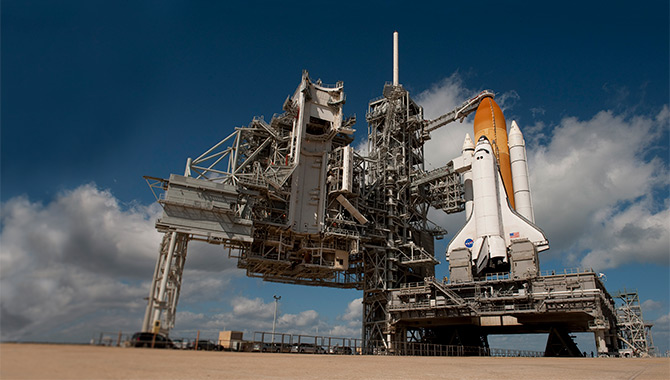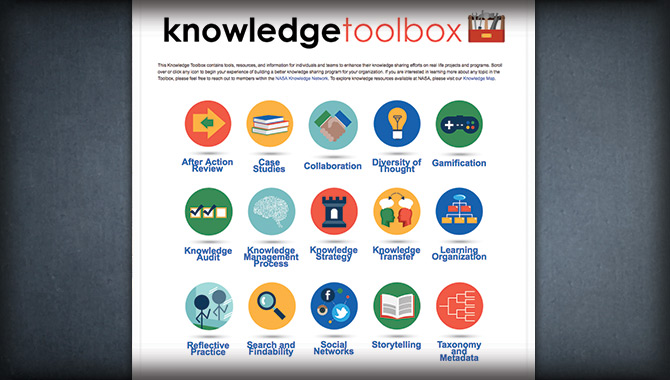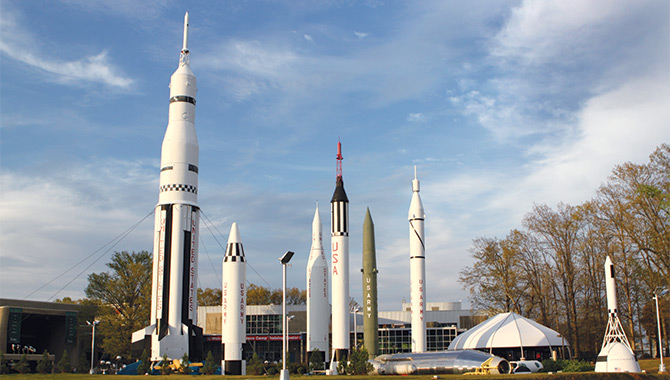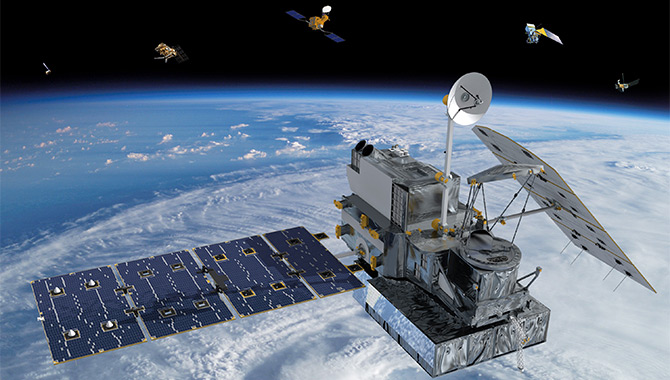
With this second issue of the NASA Knowledge Journal, I believe we have successfully secured yet another medium to promote knowledge sharing through which we can convey the passion, joy, labor, anxiety, and lessons of working together on and with knowledge services at NASA. If talented and dedicated people have an opportunity to impart with one another their experiences, only great things will happen.
Challenges, of course, always remain. It seems, though, there is one overarching challenge NASA now faces: how do we continue to share knowledge in an environment that seems to be moving even faster, affording less and less time to talk about what we are learning?
This publication provides a format for sharing knowledge that is accessible, timely, open, and engaging. The stories that appeared in the first issue this past winter offered simple yet powerful advice, insights, humor, and narratives, all of which underscored what makes sharing knowledge so forceful while making NASA projects so meaningful. Within the new pages of this Spring 2016 issue, we continue to discover new ways to make it a little easier for practitioners to continue the greater story.
Most often, a greater story is made up of smaller ones, though not lesser ones, but ones that reflect only parts of a greater whole. In this journal’s second issue, we can learn from a team about the daunting task of applying a formal effort to abstract and largely conceptual knowledge assets, with the goal of identifying and prioritizing the most critical of what we have captured. Another story tackles the conceptual in order to solidify imperatives to move our projects forward.
As NASA is at its core a project-driven organization, it makes sense that the majority of the stories in this issue exemplify knowledge practices: those distilling lessons learned from taking on new projects, those conveying several best practices on projects that have proven their value, and those transferring knowledge through the adoption and alteration of successfully knowledge-sharing projects from other centers. Within these pages, we introduce new tools and focus in on mature activities.
These stories—which are essentially about knowledge processes as much as they are about best practices or lessons learned—demonstrate a rich and varied flora of behaviors within a growing learning environment. Each story acts like an indicator for a healthy knowledge culture. We share stated goals, tolerate mistake making, remember lessons learned, and celebrate the contributions of a variety of activities, opinions, and outcomes.
I hope you find what is captured here as useful and inspiring. For more information on how to receive paper or electronic copies of this and the first issue, please visit km.nasa.gov.
Warmly,
Ed Hoffman
NASA Chief Knowledge Officer









